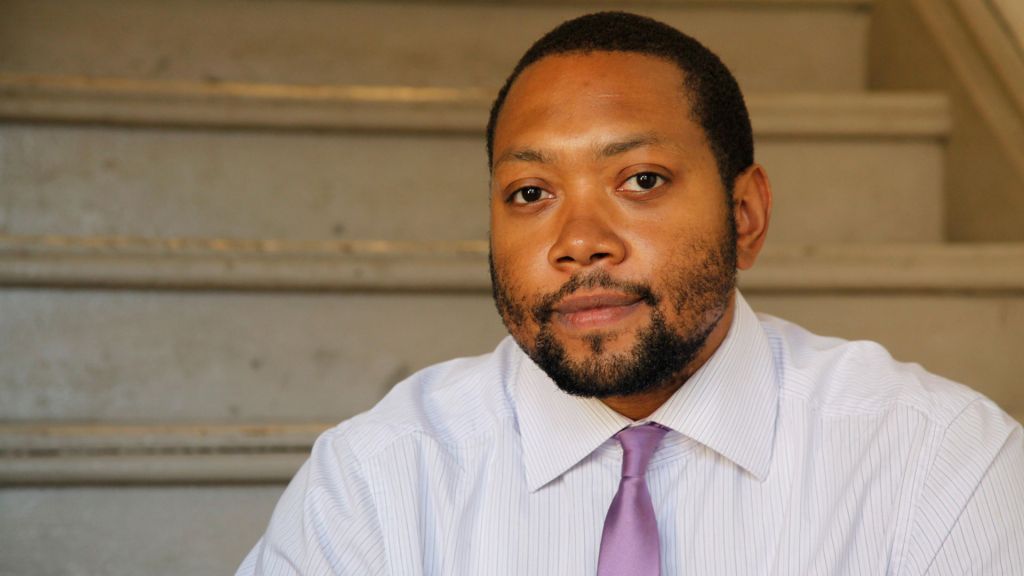
Shukree Tilghman saw Morgan Freeman on 60 Minutes in 2006 say that he believed Black History Month shouldn’t exist, because it was insulting to relegate an entire race’s history to just one month. It resonated with the young man, so much so that after film school, Tilghman was determined to set out to find out the truth about Black History Month, even if it meant fielding and considering the inevitable questions such as “Why isn’t there a White History Month?” We asked him about the resulting film More Than a Month — which premieres on February 16 on Independent Lens at 10 PM (check local listings) — and how he managed to take a controversial racial topic and make it funny and accessible to such a large audience.
What impact do you hope More Than a Month will have?
That Americans will question why black history is taught as if it is somehow separate from American history. I hope as a country, we can imagine an America where Black History Month isn’t necessary.
What led you to make this film?
A growing feeling that African Americans continue to be seen as “Other Americans.” Watching how folks were treated during Hurricane Katrina and listening to pundits refer to those victims as refugees intensified that notion. I thought that this ideal of “other” is reinforced in society by things like Black History Month. That, combined with the new idea that we live in a “post-racial” America, led to an interest in exploring these themes.
What were some of the challenges you faced in making the film?
The biggest challenge was deciding on tone, and then executing that balance of comedy and serious, tongue-in-cheek and sincere. Getting people to speak candidly about race-related issues is a challenge. Crafting a film that addressed these issues and making it entertaining as well as informative was a constant challenge.
How did you gain the trust of the subjects in your film, get them to take you seriously, and also not become defensive?
We developed a dialogue sometimes over several months and — in some cases — years through phone calls and, emails as well as through in-person visits as we developed the film.
What would you have liked to include in your film that didn’t make the cut?
We covered many stories that we just didn’t have time to put in the film. We spent a great deal of time with high school students. We could have made a great film just talking to the youngsters.
Tell us about a scene in the film that especially moved or resonated with you.
The final scene (with out revealing a spoiler here) is a conversation that was a surprise for me. It wasn’t until we got to editing that I realized this conversation completed the journey of the film.
What has the audience response been so far?
It is not a film without some controversy. At screenings, More Than a Month has created a lot of vigorous dialogue, which, of course, it is designed to do.
The independent film business is tough. What keeps you motivated?
Money. I hope to be rich. But since documentary filmmaking doesn’t promise, or even suggest, the road to riches beyond measure, I must rely on my core motivation: a love of storytelling. The great thing about documentary is that it allows one to combine storytelling with the exploration of social issues. I love that. It can be difficult to work in any creative field, so I think the people who do it and stick with it just can’t imagine doing anything else.
Why did you choose to present your film on public television?
The film found some public television support in the early development stages. As the film grew in stages over the years, we were lucky that our support also increased. We were very fortunate to get on public television’s radar early on in the process, as they truly provide the best audience for the film.
What’s this about an app?
In working on the film we developed a mobile app that helps record and preserve the often invisible African American history that surrounds us all the time, everywhere. I hope people will consider downloading More Than a Map(p).
What are your three favorite films?
Documentary: The Agronomist, Hoop Dreams, The Thin Blue Line
Narrative: To Kill a Mockingbird, Malcolm X, Annie Hall
What advice do you have for aspiring filmmakers?
Do something different. Not for the sake of being different, but because all filmmakers (and artists in general) have a unique voice and, in my opinion, finding that voice can only come from embracing difference: what’s different about you, what makes you laugh, what makes you angry, how do you think, how do you approach issues? When you can find that, and start creating from that place, then you’re on to something.

